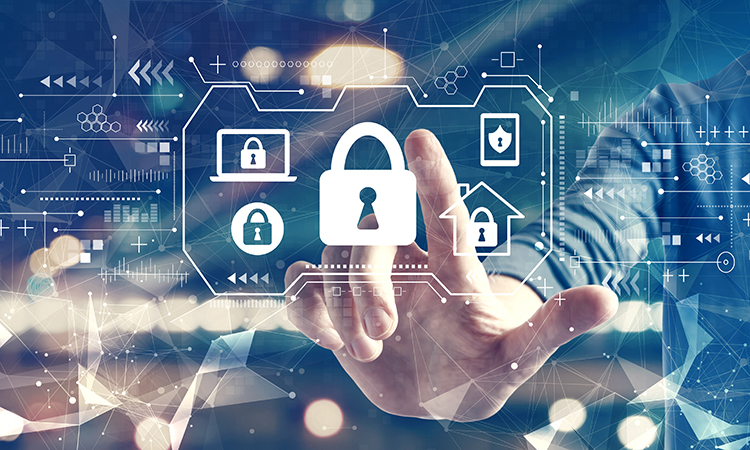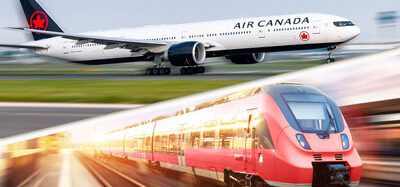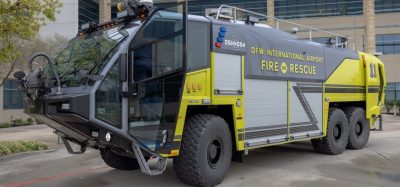Creating a more secure aviation industry in a post-pandemic era
- Like
- Digg
- Del
- Tumblr
- VKontakte
- Buffer
- Love This
- Odnoklassniki
- Meneame
- Blogger
- Amazon
- Yahoo Mail
- Gmail
- AOL
- Newsvine
- HackerNews
- Evernote
- MySpace
- Mail.ru
- Viadeo
- Line
- Comments
- Yummly
- SMS
- Viber
- Telegram
- Subscribe
- Skype
- Facebook Messenger
- Kakao
- LiveJournal
- Yammer
- Edgar
- Fintel
- Mix
- Instapaper
- Copy Link
Posted: 5 July 2021 | Neville Hay | No comments yet
Neville Hay, Director of Brooklyn Associates, explains why now is the time for the aviation industry to invest in its workforce and embrace the opportunity that the pandemic has created to review and challenge its security practices.


Since the first lockdown, the consequences of COVID-19 have impacted the globe. Individuals have lost loved ones; others have lost their jobs and livelihoods. The aviation industry has been brought to its knees. So, it begs the question, where will we be this time next year? To coin a phrase, time heals.
We have all been affected in one way or another. My own personal work was lost along with travelling to engage with clients. The virtual world was born overnight. Technology companies lined up to engage the industry with various options for touchless travel, advancing the gateway of the future and that desire for seamless travel. All are excellent solutions.
COVID-19’s impact on aviation security
But what of security in amongst all this? How much of an impact has the pandemic had on security and our view on security within aviation and at the border? It is without doubt that there are various projects that can enhance border management; making use of biometric data, advanced passenger information (API) and passenger name record (PNR) data. However, this is nothing new. It is more of a ‘bring forward’ operation rather than a long-term phased programme. Good for the technology companies, but not so good for the airport authority in terms of costs.
Amidst all of this is the loss of experience across the playing field, from the operational level to senior management level. This will have a knock-on effect for the industry”
Amidst all of this is the loss of experience across the playing field, from the operational level to senior management level. This will have a knock-on effect for the industry. As one senior manager said, it is good for some, as they will have to step up, sink or swim. To some extent, I agree, but there is another side of me that says to take a step back and urges caution. It is where grains of bad practises and negative culture can develop; by the time they reach maturity, it could culminate in more cost or catastrophic consequences from those green shoots of bad practises.
What COVID-19 should have taught us is the importance of a work life balance. Not chasing sales, performance targets and material things, but the realisation of how important the workforce is to an organisation. Many organisations have lost senior leaders, middle managers and operational staff. It has placed a tremendous strain on those left. Many senior managers have had difficult decisions to make, placing a mental strain on them. I know this from a panel interview that I held where this was discussed.
Now is the time to invest in people
My own view is that this is a time to invest in training, not relax it. Identify suitable candidates to step up. Provide opportunity and create apprenticeships and mentoring programmes. Provide individuals with the right training and skills. A sink or swim attitude can impact the individual in many ways: mentally, physically and productively. It matters not what age or experience you have, either. Senior managers need time, they need support from above and below. An investment in mental awareness and a pathway is important. It is time for everyone to pay attention to your colleagues, take time to say, ‘How are you?’ ‘Are you ok?’ ‘Is there something you want to chat about?’ Being immersed in productivity and performance is all very well and healthy, but there needs to be a balance. You may think that you’re important, but the wheels still turn when you are not there.
Although technology and procedure can enhance security, we must not forget the human element”
I teach managers across the globe through my work with Airports Council International (ACI). The great thing about this is the exchange of information and the sharing of experience. Courses are attended by those with limited experience to those with many years’ experience. Both learn from each other. It highlights the different operational practises and finance to introduce new equipment or upgrade technology. Understanding the threat and how terrorists and criminals operate is more important when it comes to deciding tactics, mitigation and conforming with regulation. Although technology and procedure can enhance security, we must not forget the human element, which can have both a positive and negative outcome. Investing in people is a priority. Airports have lost many members of staff, and this will challenge training and recruitment as aviation comes back online. The stop-start and border restrictions for travelling will continue, so some will be cautious of being employed in the industry. Technology will replace some of the work where a human was employed. Nevertheless, if the industry is to come back quickly, this will require recruitment, selection, training and security to work together.
Reviewing security
Next is reviewing what your security is and how your security is managed at the strategic level across the four domains of: People; Physical; Information Communication Technology (ICT); and Cyber. How do you know if you and your organisation are doing a good job? Is there a presumption that you are because you have never had an incident of note? Is there an attitude that it will never happen here and the likelihood is slim? Or is it you have good policy and processes in place, you carryout audits and exercise? Having just completed, with colleagues, a review of an organisation’s security management across the four areas as described above, it reinforced to me the need for organisations to review how they manage security. It is good practise for an organisation to invite an external review, even though they may have carried out an internal one.
It is good practise for an organisation to invite an external review, even though they may have carried out an internal one”
You may not agree, however, but what I can say is it negates internal bias. It brings in a fresh set of eyes, who act independently to the organisation. It will not employ favouritism. No internal collaboration or intimidation. An eight- to 12-week strategic security management review can produce documentation to assist, confirm or deny best practises. It can also bring in external experience to share and not just be a ‘tick a box’ exercise. It will help to question policy, procedure, governance, accountability and responsibility throughout the organisation and identify who is accountable at a board level of the organisation for security. What is the security culture like, is it positive or negative?
A review will provide ways to enhance security culture, identify low hanging fruit and other areas that will be more milestone gains. INTERPORTPOLICE community security best practises highlight this in its port security management systems process. My advice to an organisation is to be bold, make a small investment and step outside of the organisation to facilitate an independent reputable review. It can help your organisation to develop timelines and recognise areas for growth and improvement whilst acknowledging areas of good work.
The importance of communication
COVID-19 presents organisations with an opportunity to review, brainstorm, involve its workforce, get creative and challenge the status quo”
This is the year of security culture. Maintaining positive security requires communication. Many organisations can be left lacking in communication, which creates gaps in the information exchange and situational awareness across the organisation and, therefore, accountability is lacking. COVID-19 presents organisations with an opportunity to review, brainstorm, involve its workforce, get creative and challenge the status quo. Organisations should have learnt to be resilient, but they also need to be agile. That means they need to be organised, prepare and communicate through good leadership and decision making. This can only be achieved if organisations work as a team, train and constantly review. There will be many more challenging times ahead. Cyber will be a constant challenge, as well as climate change and other pandemics.
As a former specialist firearms officer, the question always was why are these teams so good at what they do? The answer: three basic elements – train, work as a team and constantly review. They have a recruitment and selection process, they are provided with the right equipment and training, they work as a team, they communicate, they support each other and adapt quickly to the change in circumstances. They explore others practises. They review and continually develop. Organisations can apply the same.
Neville Hay has over 32 years’ diverse police experience within the security and emergency services environment. His experience includes that of a specialist firearms officer, National Security and counter terrorism, a mentor and global trainer. He is a graduate of the United Nations (UN) International Civil Aviation professional managers programme. Hay has wide-ranging operational and tactical experience and has worked closely with the UK’s strategic security environment, working closely with many key stakeholders within the emergency services and the aviation industry, UK government departments and law enforcement agencies, both national and international. His functional expertise lies in risk and threat assessment and its mitigation, operational situation and intelligence analysis, and law enforcement within the aviation, transport and infrastructure security environments.
Related topics
Airport crisis management, Airside operations, COVID-19, Cyber-security, New technologies, Recruitment and training, Security, Terminal operations, Terrorist attacks, Workforce
Related organisations
Airports Council International (ACI World), Brooklyn Associates


















